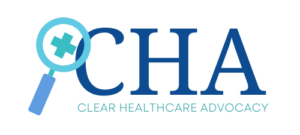Having a baby is STRESSFUL!! The physical and emotional effects of pregnancy, delivery, and the postpartum period are A LOT to deal with. Throw in the medical bills arriving from all directions, and the once normally-functioning parents of a newborn can find themselves in a sleep-deprived, stressed-out, can’t-squeeze-one-more-thing-into-naptime mess!
Before you get your postpartum panties in a bunch, here are some hints for avoiding unexpected pregnancy-related costs:
✔Know your health insurance coverage/benefits.

- Does your policy cover maternity care? Thanks to the ACA, most health insurance plans cover maternity care—but beware short-term health insurance policies and cost-sharing plans that are not bound by ACA regulations!
- No maternity coverage? (Long story, but this actually happened to me when I unexpectedly found myself pregnant with twins back in 2010, so it can happen to anybody😂.) You may be able to qualify for Medicaid or find other maternity coverage (check out AmericanPregnancy.org)…or reach out to your healthcare providers/facilities NOW to negotiate self-pay discounts!
✔Know your out-of-pocket costs (i.e. your deductible, coinsurance, and out-of-pocket maximum).
- Knowing this information helps you to plan for upcoming expenses AND helps you to realize if you’ve paid more than you should during a health-plan year.
✔Utilize in-network providers.
- Is your OBGYN in-network? How about the hospital at which you plan to deliver? And the ultrasound tech/radiologist performing your ultrasounds (if performed outside of your OBGYN’s office)? The lab where your bloodwork will be sent? And any specialists you’re referred to along the way? You DO have control over where your labs are sent and where you receive any of these non-emergent services!
✔Know your plan’s prior auth/pre-certification requirements.
- Most plans don’t require authorization for delivery, unless your inpatient stay exceeds 48 hours for a vaginal delivery or 96 hours for a C-section, but check for prior auth requirements for any non-routine care you receive (i.e. amniocentesis, in-utero procedures, etc.).
✔Stay on top of the bills as they come in!
- Match each and every bill with its associated EOB as you receive them to make sure your insurance processed the charges correctly and the provider is billing you correctly. If the amount listed under patient responsibility on the EOB doesn’t match the bill you receive, don’t pay it without investigating first!
- Keep a running tally of amounts that have been applied to your deductible and coinsurance, so you don’t pay more in out-of-pocket expenses than you should!
- Don’t put off investigating charges/bills that don’t look right until after baby comes! Those billing companies aren’t going to give a rat’s batooty that you’ve been too overwhelmed with a newborn to deal with your medical bills—they’ll send you to collections faster than you can say, “What the heck did we just do to our lives?”

✔Get help!
- If you end up with bills you’re uncertain about owing—and you’re too overwhelmed, confused, and/or tired to figure things out on your own—hire a patient advocate to straighten things out on your behalf! (No one likes to spend their precious postpartum nap time on hold with an insurance company, after all😴.)






